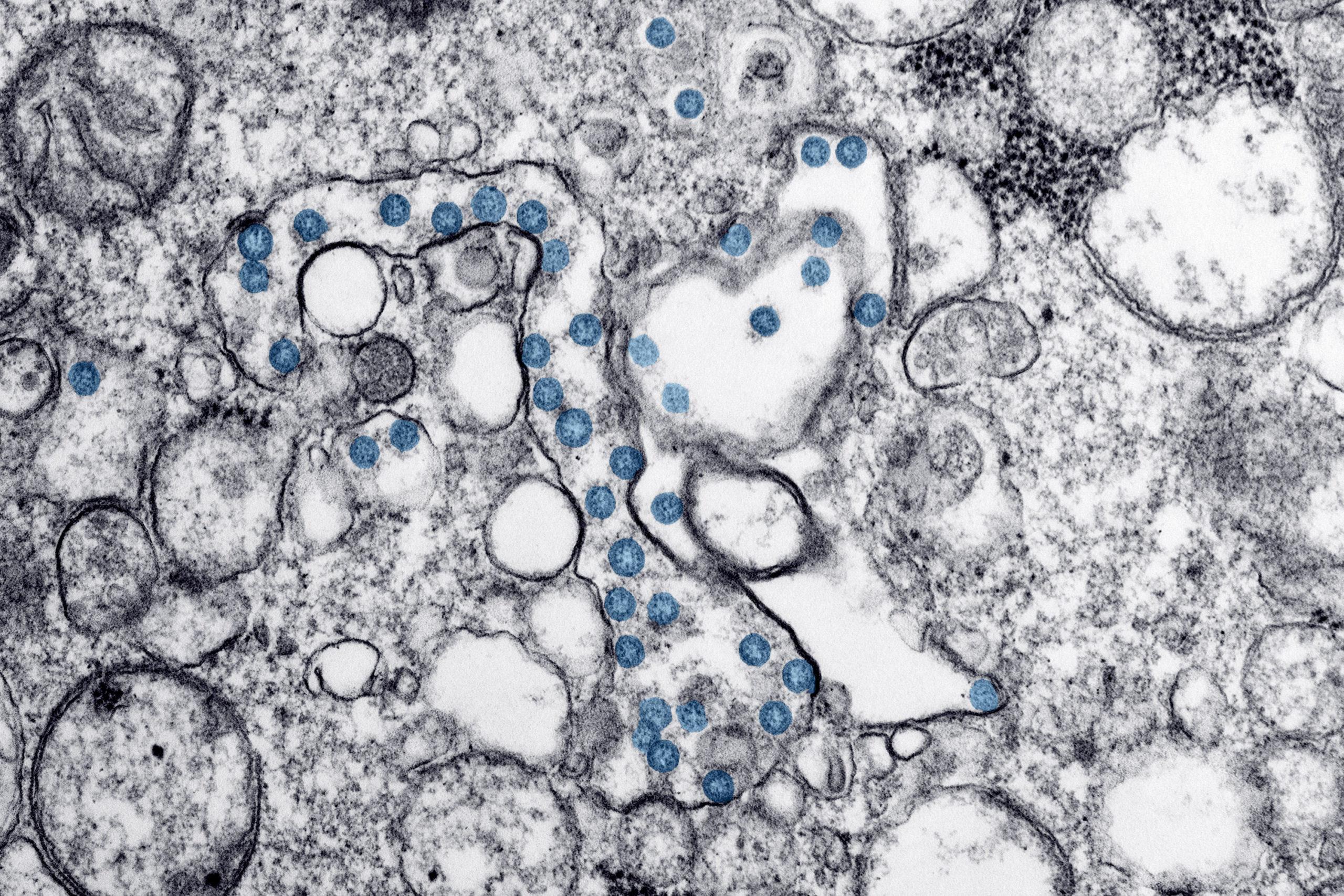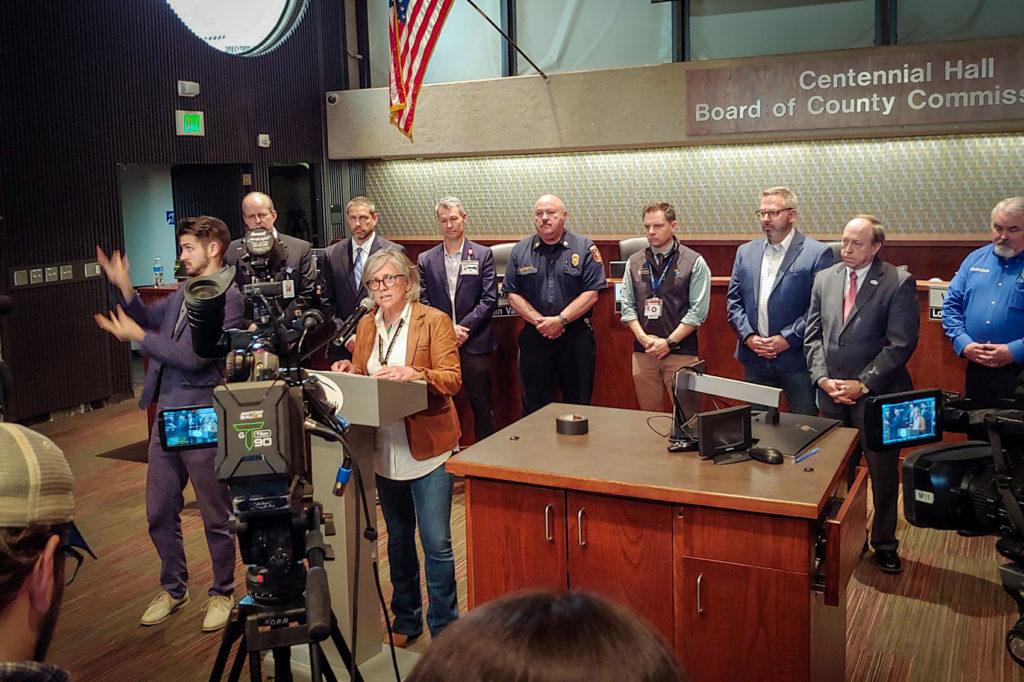
Colorado’s cases of the new coronavirus continue to rise, going from two to eight as of Friday afternoon.
El Paso County health officials reported the fifth presumptive positive case of COVID-19, the disease caused by the new coronavirus. The patient is a male in his 40s who recently traveled to California. He is currently in quarantine and not in need of hospitalization.
Officials are confident he did not travel internationally, and that he likely contracted coronavirus in California. The patient returned to Colorado via plane through Denver International Airport.
Two new cases in Douglas County and one new case in Eagle County were also announced on Friday. The two patients in Douglas County were a school-aged female and a woman in her 40s, both exposed during international travel. We do not know if these cases are related.
The patient in Eagle County is a woman in her 50s who was exposed during international travel. She is recovering in isolation and does not need to be hospitalized. The patient is working with officials to contact anyone that may have been exposed to her.
At a press conference at Centennial Hall in Colorado Springs on Friday afternoon to discuss the El Paso County case, health officials reiterated that Coloradans should remain calm.
Dr. Robin Johnson, medical director of El Paso Health, said at the press conference that the patient immediately self-isolated at the onset of his symptoms, even before he was tested. His family members are quarantined, and they're working on identifying anyone else he had contact with.

Colorado's first two cases of COVID-19 were announced on Thursday, March 5. They include a man in his 30s who had been traveling from out-of-state to Summit County and an elderly woman in Douglas County who went on a cruise abroad.
Two more cases were reported in Denver on Friday, March 6, unconnected to the earlier cases in Colorado. One of the patients in Denver was a parent of a student at St. Anne’s Episcopal School, which had closed earlier on Friday due to possible exposure. Both of the people who tested positive had recently traveled to Vancouver and on a cruise. Both came to health officials to self-report their symptoms.
The Centers for Disease Control and Prevention will have to confirm the results of all five tests.
In response to a question about why Colorado is hearing about all these cases at once, Johnson said she had an idea but emphasized she'd be hypothesizing, so to take her answer in that context.
"We have seen though in other areas that the spread of this virus has followed a similar pattern, so I don't know that it's just due to testing or that it's actually due to spread," Johnson said.
People under quarantine orders from the Denver Department of Public Health and Environment are kept in isolation for two weeks, accounting for the full 14-day incubation period of COVID-19. They are instructed to stay at home and avoid school, work and public transportation. They are not allowed to have visitors and will get contacted by public health staff daily.
The virus spreads from person-to-person. Someone who is displaying symptoms can spread the illness to others, but the odds are lower when the person is still asymptomatic. Because COVID-19 is a new disease, experts are not exactly sure how, how quickly or how easily it spreads.
The likelihood of contracting the disease if you’re in the room with a sick person depends on how close you get, how much time you spend and whether or not a person coughs or sneezes on you or something you touch. The virus transfers through mucus and saliva.
The virus cannot penetrate the skin, so washing your hands is an effective method for protecting yourself. Also disinfect surfaces often and avoid touching your face.
"Wash your hands, wash your hands, wash your hands, wipe down surfaces with sanitizing wipes. Keep your phone clean too," said Dr. Michelle Barron, medical director for Infection Control and Prevention at the University of Colorado Hospital on the Anschutz Medical Campus. "Stay hydrated, eat healthy. I mean, common things we recommend for flu actually are very much applicable for this as well.”
As concern about the virus has spread across the country, so has misinformation. Medical supply stores around Colorado are sold out of medical masks. Experts say the masks aren’t the best way to protect yourself from the COVID-19 anyway.
The majority of people who get the illness will have mild symptoms or none at all. Older adults and people with weaker immune symptoms are at risk for more severe symptoms and may require more intense medical treatment. There isn’t a vaccine for the new coronavirus yet and there is no specific antiviral treatment.
The Denver International Airport said it is prepared and has run through quarantine simulations with other local agencies.
"We looked at what happens and walked through a contagion situation where we had a patient, a fake patient, of course, a plastic patient transported from DIA, kept in isolation,” Gov. Jared Polis told Colorado Matters earlier this year. “So our administration is ready and we work closely with counties and with school districts to prevent an outbreak that would risk the lives of Coloradans."
Polis had raised Colorado's emergency preparedness to its second-highest level on Tuesday, March 3. The governor's office and state health officials also drafted what emergency powers under a coronavirus epidemic would look like for Polis earlier this week.
CPR's Xandra McMahon Taylor Allen, John Daley and Natalia Navarro contributed to this report.







